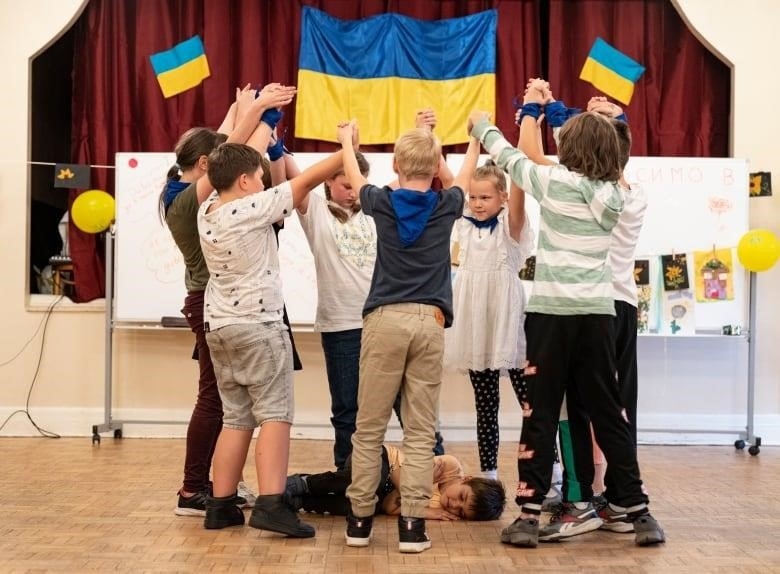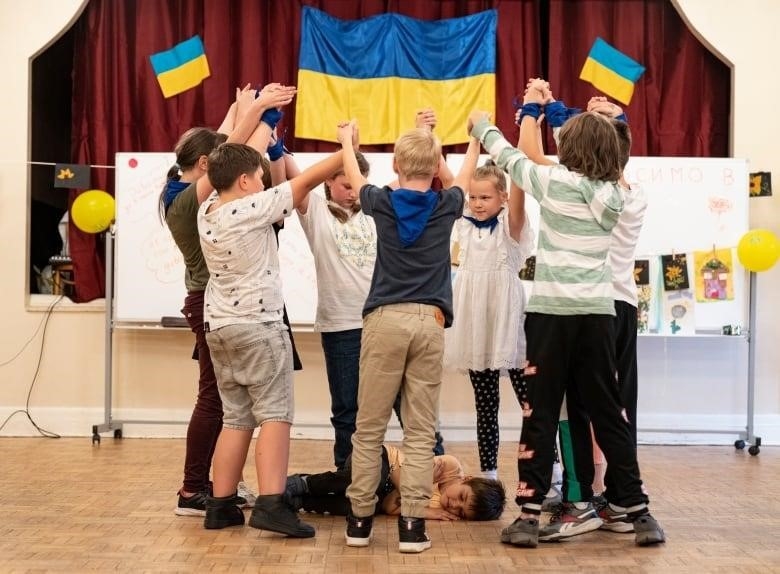
The goal of Camp Dyvo is to help newcomers feel like part of a group
Ukrainian music blasted out of a basement in the Mile End neighborhood of Montreal on Friday afternoon as a group of happy children danced in front of their parents, who brought them to Canada to get away from the war in their home country.
The 30 kids, who were between 5 and 12 years old, were the first group to go to camp Dyvo, a free summer program that helps Ukrainian refugee kids and their families get used to living in Montreal. The first two weeks of camp were over after the performance on Friday. Next week, 30 new kids will start school.
The Ukrainian National Federation’s Quebec branch came up with the idea for Dyvo, which means “wonder” in English.
Branch president Taras Kulish said that the goal of the program is to help newcomers feel like they are part of a community and help them get used to their new surroundings by taking them on day trips to get to know the city. The camp is run out of the community center of the federation.
So far, Kulish said, the camp has been a very important place for refugees who left Ukraine because Russia started a war there.
In a recent interview, he said, “You can’t even imagine leaving your family and everything you love behind.” “You move to a country where you don’t know anyone and don’t have family or friends. So getting to know people from your own culture would seem to be a very important way to build community.
Kulish said that the program helps new immigrants feel more at home in Montreal while promoting Ukrainian culture. It also gives refugees jobs as camp leaders. It also stresses that campers use Ukrainian, even though many of them go to French schools.
Kulish said that the result is an environment that is “nurturing” and makes people appreciate the Ukrainian language and culture.
For Maryna Kucher, the camp has been a way to help her 11-year-old son feel connected to the country where she grew up. She moved to Canada with her two sons in April 2022, not long after the war started. The husband of Kucher stayed behind to fight.
“I’m so happy about this program because our children, especially when they’re young, need to keep their language and traditions,” she said before Friday’s performance. “It’s very important to speak, sing, draw, be together, and help each other.”

Olena Khomyakova, who is in charge of the camp, said that the camp has been able to use the talents of the refugees to give the kids things to do. Ukrainian artists from the area have shown how they paint and make stop-motion movies.
The walls of the theater in the basement of the community center are covered with Ukrainian-language drawings and posters made by children.
Anastasiia Soliak’s son, who is nine years old, went to the camp. She said that it helped him fit in better in Quebec.
She said, “It’s very important for children to be part of society, but they also need to be in a safe network. This is the first step toward becoming part of the new society.”
Kulish said that the Ukrainian National Federation got 200 applications from local families whose kids wanted to go to camp this year. He said that he is trying to get enough money so that the program can grow over the next few years.
